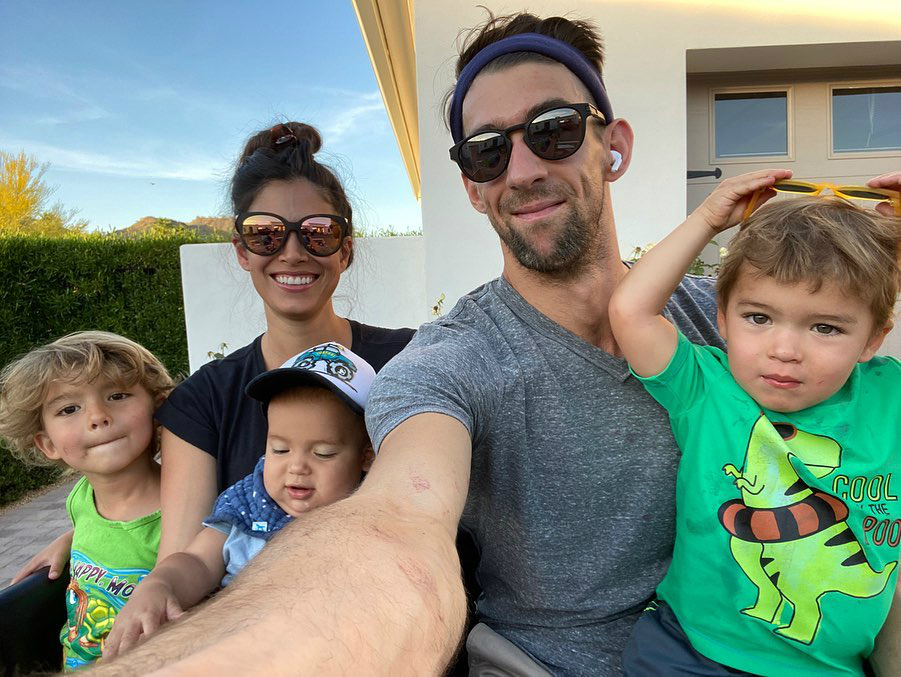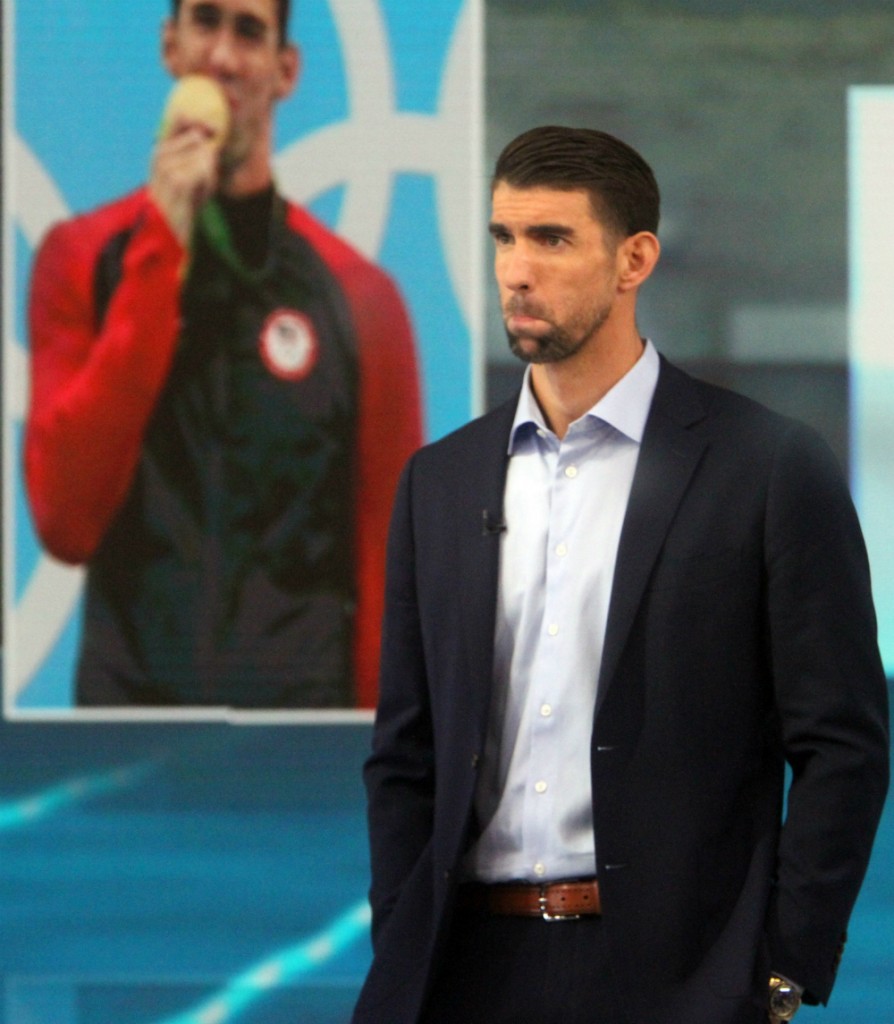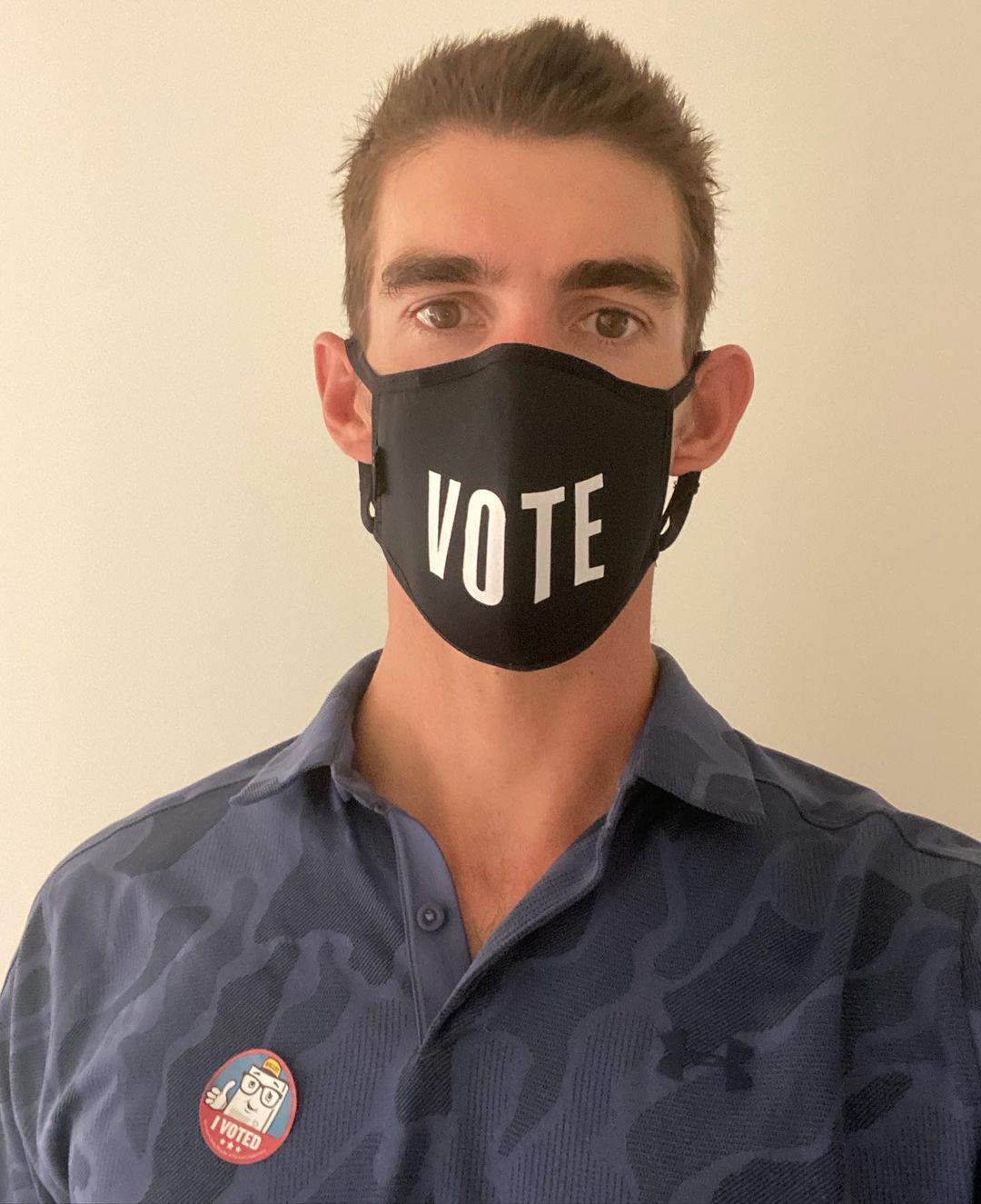Michael Phelps’ personal journey made him face many of the struggles that led to some destructive behavior in his past. In doing so, Michael confronted his depression and anxiety and the need to ask for assistance to work on his mental health. Not only has it helped him with his recovery, it’s made him a better husband and a better father to his three sons, Boomer, four, Beckett, two, and Maverick, 15 months. Given the toll 2020 hastaken on so many, Michael wanted to get the message out to everyone that “it’s ok not to be ok,” something he says he tells himself “every single day.”
Even as a former Olympic swimmer, when it comes to dealing with his mental health, Michael Phelps often feels like he’s trying to keep his head above water.
The world-renowned athlete, who has been open in the past about his depression and anxiety, tells PEOPLE that he continues to “struggle every single day” with his mental health, but that “asking for help” has been a key factor in his recovery.
Phelps, 35, says that the mantras “It’s okay not to be okay,” and “Be you,” have been “on a repeat in my head every single day.”
“If I’m not the best me, then I have no chance of being the best husband, the best father, the hardest worker. I don’t have that chance, so I have to be me,” says Phelps, who shares three sons — Boomer, 4, Beckett, 2, and Maverick, 15 months — with wife Nicole.
“And, am I struggling? Hell yes, I struggle, I struggle every single day,” he admits. “It’s understanding that I’m not the only one in the world that’s struggling, and not everybody is out to get me. I’m just going through a difficult time, so that’s okay. And it’s okay to talk about that. It’s okay to ask for help.”
The 23-time gold medalist says that while a lot of people may look at depression or anxiety as a “weakness or a negative,” he says it’s simply what “makes us human beings and makes us grow as people.”
Phelps says that asking for help and understanding that his feelings were normal were major turning points for him.
“Once I realized that it’s okay to not be okay, I started sharing the emotions that I was going through, or the thoughts that I had and I felt safe with that, and that’s what’s helped me be able to grow and learn more about myself,” he explains.
While the athlete admits he didn’t want to “sit on that leather couch” for a therapy session, it was ultimately “that leather couch that saved my life.”
“Being able to unload some of the things that I was holding on to, it truly gave me space to grow,” he tells PEOPLE.
Michael, of course, runs the Michael Phelps Foundation, which devotes part of its mission to mental health. I believe Michael’s commitment to helping others in their battles with anxiety and depression. There was a time when Michael lived as though he believed he was totally in control and he clearly wasn’t. You can tell he’s learned to ask for help, like he advocates. That’s what makes him such a good spokesperson for this cause, because when he speaks to “unload(ing) some of the things that I was holding on to”, he’s not just paying lip service. I’m glad that he is not only doing the work for himself but also Nicole, who’s supported him throughout, and his boys who deserve to have a dad who is fully present in their lives.
As for Michael’s message, it’s one that can’t be said enough. Considering how many people are alone in lockdown, the feeling of isolation compounded by depression and anxiety can be overwhelming. So it is more important than ever to let people know they are not alone. If you’re on Twitter, you’ve probably seen several Tweets in which someone reminds everyone to check in on friends for various reasons. It seems cliché but its good advice. I called a friend back this weekend after being too busy to do so for several weeks. He said he’d called me because he’d been really missing his mother, who’d passed after he’d nursed her through a long battle with Alzheimer’s. She’d died right before COVID hit. Like Michael, we both admitted to struggling and said we just needed a break from one crisis after another. But it helped to reach out to each other, I felt lighter after our call. I also appreciate Michael’s comments about therapy. Therapy can be unfairly shamed, but it is such a valuable tool. It’s hard right now with in-person appointments limited, but virtual appointments have proven very effective. So if you are struggling, you are not alone.
If you or someone you know need mental health help, text “STRENGTH” to the Crisis Text Line at 741-741 to be connected to a certified crisis counselor.
Photo credit: Instagram and Backgrid














Kudos to him for this. It’s admirable that an Olympic athlete (super athlete?) who has achieved so much can admit he struggles with mental health. I do have to wonder, however, whether his competitive nature has contributed to his issues.
You guys need to check out Nile Wilson. He’s a British gymnast who has gone through very similar things. His YouTube is hilarious and inspiring and he has a documentary about his struggles. I think so many people deal with this at different points in their lives and the more “elite” people who came out and say I medaled in the big 4 at age 20 and I suffer from anxiety and depression – god that’s helpful.
Well, I needed to read this today. Thanks Hecate and Michael Phelps.
I lived in Baltimore during Michael’s Olympic and college years and he was a fucking mess. I’m glad he’s gotten things together and realized he needed some help and is telling people it’s okay to seek help.
I’ve always loved him. I was a swimmer growing up so watching him swim was always exhilarating. I’m glad he did this. Mental Health is very important. Now more than ever.
It’s a great message. Opening up and admitting vulnerability is incredibly hard and can be very intimidating. Often times, it’s the stigma from close friends and loved ones that prevents others from seeking out help. Some might even feel that they don’t want to impose their problems on others. I wish Michael well on his mental health journey.
I did not know his mom passed. I still remember her in the stands when he broke the record.
With the advancement of technology, therapy is becoming more accessible, but unfortunately not affordable. That really needs to be worked on. Still.
Hey Tiffany. Michael’s didn’t pass away. The author of this article’s friend’s mom passed, which is just heartbreaking. So sorry for that.
Ohhhhh. Thanks for the clarification as I might have read it wrong.
I have to say, I just want to cuddle Maverick. He is such a cute little bubba. Loooove those cheeks ❤️❤️❤️
Really resonates. My mental heath has been such a struggle, and todays anxiety is terrible. Hang in there everyone ❤️
What a great post, thank you Hecate. I can imagine that his years of swimming competitively could have both helped (physical exercise helps) and exacerbated (pressure of competition is so stressful) whatever depression and anxiety he was already prone to. I hope a big audience hears his message.
I struggled my whole life and didn’t seek help until I had kids, because I also knew I couldn’t be my best self for them without some serious help. I will always be grateful for the therapist who fit me into her packed schedule by adding an hour to her long day so I could come in at 9:30pm after my kids were in bed.
I just heard a radio story about how much suicides have skyrocketed, especially among young men of color. My neighbor’s son took his life a few weeks ago, after just having wrapped up work on a master’s degree in journalism. Although he had been in treatment for anxiety, they believe Covid was a major factor in his death. Hopefully messages like Phelps’s will help more people seek help.
I appreciate his openness about ADHD as well as he has spoken about how it has impacted his life as well.
Perfect Harry/Meghan podcast interview. What a catch that would be and falls right in with W/K effort.